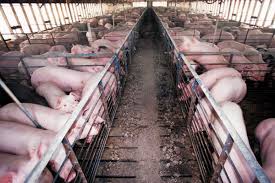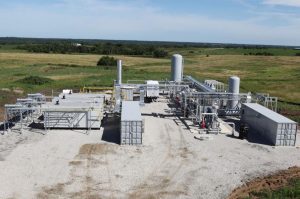
Those “manure-to-energy” projects are growing as witnessed in Missouri where two companies have teamed up to convert pig poop methane into renewable natural gas.
The $45 million investment was announced by Monarch Bioenergy which according to the St. Louis Post-Dispatch is a joint venture of giant pork producer Smithfield Foods and St. Louise-based Roeslein Alternative Energy.
Smithfield, which bills itself as the world’s largest pork processor, is also Missouri’s biggest corporate owner of pig farms.
The companies have partnered since 2014 to equip Smithfield’s hog finishing farms with custom-engineered systems that cover on-site waste lagoons to capture released methane, and eventually add it to a nearby natural gas pipeline for distribution.
“Our companies have a longstanding commitment to renewable energy, and we’re thrilled to be one step closer to having nearly all our Missouri finishing farms engaged in producing RNG,” Kraig Westerbeek, senior director of Smithfield Renewables and hog production environmental affairs for Smithfield Foods, said in a statement.
In the last several years, the relationship between Roeslein and Smithfield has grown.
Since completing their first “biogas” project at an Albany, Missouri, hog farm in 2016, the two companies have completed the work at four additional Smithfield facilities across the northern part of the state. By 2018, a deal was reached to have the projects expand to the Smithfield hog farms in other states, as part of the company’s initiative to reduce its greenhouse gas emissions 25% by 2025.
By last year, the companies had seen enough promise from the renewable natural gas projects to create Monarch, the joint venture dedicated to the work.
“The scale of Smithfield’s operations and our expertise in renewable energy production have created the ideal partnership to have a tangible impact on carbon emissions,” said Rudi Roeslein, president of Roeslein Alternative Energy, in a statement.
So far, 85% of Smithfield’s hog finishing farms in Missouri have now been converted into renewable natural gas generation sites.
Source: St. Louis Post-Dispatch




